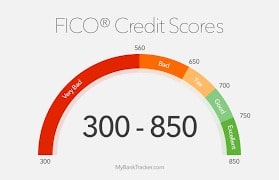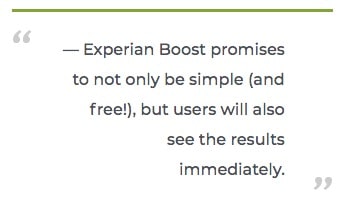I write a lot about credit reports and scores. It is one of the most important things you should know when you are thinking about purchasing a vehicle, a house, applying for a job, or shopping for insurance. Your credit score is one of the most important factors in determining what interest rate you will pay on loans and you should know what information the lenders, employers and insurance companies have on you.
In the past you would have to wait weeks to get a copy of your credit report in the mail which would make it tough if you were wanting to purchase something right away. Thanks to technology that wait time is eliminated and you can check your credit on the spot when you want.
What is a credit report?
A credit report is a file based on your personal credit history and is kept and managed by a credit bureau. It is basically your own personal financial report card for lenders and others to determine your past history for paying your obligations on time.
The three most common credit bureaus are TransUnion, Equifax and Experian. Your credit report contains information such as your name, address, social security number, birth date, public records such as bankruptcy, judgements and liens, credit and loan payment history.
Credit grantors such as banks and lenders will report both negative and positive payment information to these bureaus. Utilities such as electric and phone companies, medical and student loan companies may also report to the bureaus.
Anytime you apply for credit, including a credit card or car loan, credit grantors may inquire and review your past credit history by using your credit report to get this information. Companies that pull your credit history do not have to give you a copy of your report, even if you request it. However, you are able to contact the credit bureaus directly to obtain it.
What is a FICO® score?
The FICO® (Fair Issac Corp.) score is like a grade you would get in school and is also known as a beacon score. It ranges from 300 to 850. Most people fall between the 500 and 800 range. Companies base their risk assessment of you based on your credit history. The higher the number, the less riskier you are in paying back your obligations.
The higher the score, the lower the interest rate you will qualify for on a loan. The lower the score, the higher risk you are to the lender which means you will most likely be subject to higher interest rates, larger down payment requirements, additional fees or you may not be able to be approved for the loan at all.

How your FICO® score is calculated.
Your score is mathematically calculated from five different areas of your credit report. These areas include:
35% Payment history
30% How much money you still owe to creditors
15% Time on bureau or length of credit history
10% New credit or new open trade lines
10% Other factors such as types of credit used
Will requesting my credit report lower my score?
Inquiring on your own personal credit report will not hurt or lower your score. When you request your own credit report either with the bureaus direct or via a service like Credit Karma is considered a soft pull and will not lower your credit score and it will not show up as an inquiry on your credit report.
A hard pull is the opposite of a soft pull. A hard pull is when a company requests your credit report when you are applying for a loan or credit card. By having too many hard pulls on your credit report can make a lender believe that you are trying to over-extend yourself and could lower your credit score.



